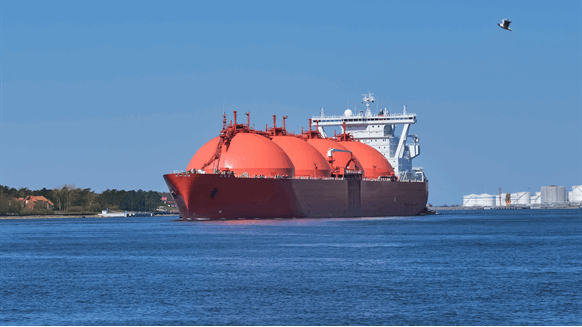How does the Houthi attack affect global LNG supply? Favouring inter-basin trade
In recent weeks, Houthi-led maritime attacks in the Red Sea on commercial vessels moving between Yemen, Djibouti, and Eritrea have significantly increased global shipping risks and raised the ire of many foreign governments.
Since the attacks unfolded in light of the Israel-Hamas war, experts predicted major disruptions in the Red Sea and Suez Canal as frequent attacks on vessels have forced carriers to avoid waterways, which will have long-term political and economic risks. Connected to the Mediterranean by the Suez Canal, the Red Sea is the shortest shipping route between Europe and Asia.
The disruptions of maritime shipments inevitably impacted the global supply of liquid natural gas (LNG) going through the Suez Canal. Many energy-producer countries like the United States (US), Qatar, United Arab Emirates (UAE), and others use this route to ship LNG tankers to Europe and vice versa.
However, in light of the violent attacks, many global energy companies decided to re-route LNG supplies due to safety concerns. For instance, Qatar Energy, the world's second-largest exporter of liquefied natural gas, stopped sending tankers via the Red Sea in January 2024, although production continues. Since December 2023, at least four tankers used to carry Qatari LNG were held up over the weekend after the US and British-led maritime coalition responded by carrying out dozens of air and sea strikes on Houthi targets in Yemen.

In addition, in the oil market, at least six more oil tankers have either diverted their course away from or paused before entering the southern Red Sea Read since February 2024. As much as 8.2 million barrels per day (bpd) of crude oil and oil products traversed the Red Sea in the January-November period of 2023. As a result, Houthis' attacks made the reaching of the Suez Canal more perilous.
About 8% of global LNG shipments have passed through the Suez Canal in 2023, but only about half have flowed east through the canal from the Atlantic Basin. The most active users of the waterway among LNG suppliers are Qatar, with the US representing less than 30 per cent. However, some leading risk analysis companies believe that disrupted LNG flows through the Suez Canal would have only a limited impact on global LNG markets because it would not significantly reduce global LNG supply, although it would suggest higher shipping costs for specific routes such as exports from Qatar to Europe.
As of today, the impact of Houthi attacks on commercial vessels had a limited impact on global LNG supply. This is mainly due to sufficient global supply, a warmer-than-average northern hemisphere winter, high European storage levels, and new market dynamics brought on by the Russo-Ukrainian war. Nevertheless, in case of continuity of attacks in the Red Sea, the global energy market would immensely experience more volatility as such a scenario will pave the way for the militarization of the Red Sea with specific geopolitical ramifications.

At the same time, Middle East suppliers will seek more Asian buyers, who can be reached without entering the Red Sea and passing through the Suez Canal, minimizing their exposure to the Bab el-Mandeb Strait. Considering previous attacks, it is noteworthy that Houthi rebels mostly attack large container vessels and bulk carriers. Consequently, in the mid-term, LNG carriers may be viable targets for Houthis.
On the other hand, the US-led coalition air strikes on Houthi military bases in Yemen have limited impact as a deterrence element. Iranian-backed Houthi rebels have well-organized and trained armed forces capable of conducting independent military operations, as they did against the Saudi Arabia-led Arab coalition in 2015. Therefore, all expectations and optimistic forecasts regarding the Western coalition's positive impact on the Red Sea seem to be unfounded.
The Houthis have, for years, been supplied by Iran, yet their shift to maritime combat and surveillance operations over the past several months implies a more recent introduction of new weaponry, including more helicopters and additionally trained military staff. Notably, Houthi attacks in the Red Sea will further hamper international transit operations, including energy flow through the Suez Canal.








